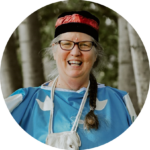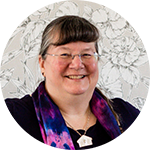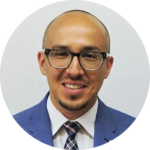Welcome and Introduction
Welcome to the self-guided learning opportunity for National Day of Truth and Reconciliation, based on the Truth and Reconciliation Calls to Action.
This learning is divided into six modules. We encourage you to take each section at your own pace and to give yourself enough time to reflect on the learnings as you go. Feel free to explore the content in any order you’d like, however we do recommend the following learning path: More Than Words; Culture of Belonging ; Truths; Reflection; Community Building; Action.
Each section will contain an introduction with learning activity and resources (if applicable), followed by a prompt for reflection and call to action. Reminder, as you make your way through the materials, sit with what you learn and process the information at a pace that works for you. This learning is your journey to take.
Bookmark this page and come back to these learnings and resources anytime. This self-guided learning journey will continue to be available after September 30.
Thank you for joining us and taking this step on your own path for truth and reconciliation.
To get started, click on one of the icons below.

The on-demand modules fall under Category A, development activity A3 of your CPD log. The CPD hours accrued are 1 hour per hour of instruction to a maximum of 8 hours per day. Please note there is no CPD code; therefore, you will need to log the hours manually. Details can be found on the CPD FAQs page.
Who are the Indigenous Peoples of Canada? 2
First Nations, Inuit and Métis are the three main groups of Indigenous peoples in Canada, meaning that they are the original inhabitants of these lands and their descendants. Each group has its own distinct culture, collective consciousness, traditions, and way of life.
First Nations people comprise the largest population of Indigenous people in Canada.
Inuit peoples are Indigenous peoples living in the Inuit homelands in the arctic regions of Canada. First Nations and Inuit have occupied Turtle Island for thousands and thousands of years and are considered the original caretakers of Turtle Island.
Métis people are defined by their collective history, not solely their mixed Indigenous and European ancestry; they include people who self-identify as Métis, are of historic Métis Nation Ancestry, are distinct from other Aboriginal Peoples and accepted by the Métis Nation.
Resources and Extended Learning

Education is what got us into this mess, and education will get us out.
— Hon. Murray Sinclair
- Sign up for the HR Insights Newsletter for monthly updates about upcoming learning opportunities
- HRPA Members, continue in the knowledge sharing. Participate in the Indigenous Community of Practice “Open Forum for Indigenous Allies.”
- Certified Indigenous Human Resources Professionals
- Indigenous Professionals Association of Canada
- Indigenous Works works with companies and organizations to strengthen their performance and results in Indigenous employment, workplace engagement and inclusion.
- Canadian Council of Aboriginal Businesses (CCAB) Progressive Aboriginal Relations Program
- Canadian Council for Aboriginal Business (ccab.com)
- Forward Summit is an Indigenous-led, multi-day conference dedicated to advancing economic partnerships, discovering opportunities for change and supporting national relationships between Canada’s industry leaders and Indigenous Communities.
- The University of Alberta Indigenous Canada course is a 12-lesson Course that explores the different histories and contemporary perspectives of Indigenous peoples living in Canada.
- Indigenous Corporate Training
- lndigenous.Link™ | Connecting with Indigenous Communities
- Ontario Federation of Indigenous Friendship Centres
- Ontario Native Women’s Association
- Chiefs of Ontario (represents 133 First Nations communities)
- Legacy of Hope Foundation: Residential School Survivor Stories
- National Inquiry into Missing and Murdered Indigenous Women and Girls
- United Nations Declaration on the Rights of Indigenous Peoples | United Nations For Indigenous Peoples
- National Centre for Truth and Reconciliation
- The Survivors’ Flag
- Indigenous Peoples Atlas of Canada
- The Indigenous Peoples of Canada – Destination Indigenous
- Project of Heart Ontario is an inquiry based, hands-on, collaborative, inter-generational, artistic journey of seeking truth about the history of First Nation, Métis and Inuit people in Canada.
- Where the Spirit Lives is a 1989 television film about Aboriginal children in Canada being taken from their tribes to attend residential schools for assimilation into majority culture.
- Indigenous Law Insights Webinar Series
- TakingITGlobal is one of the world’s leading networks of young people learning about, engaging with, and working towards tackling global challenges.
- Canadian Roots Exchange builds bridges between Indigenous and non-Indigenous youth in Canada by facilitating dialogue and strengthening relationships through leadership programs.
- Niibing Tribal Tours offers tribal tourism opportunities to global visitors, led by Cindy Crowe
- National or Ontario Association of Friendship Centres
- Blue Sky Community Healing Centre is empowering individuals one person at-a-time to believe in themselves and in turn pass that on to others.
- Indigenous Tourism Ontario
- Canadian Centre for Diversity and Inclusion
You can donate your time, resources and efforts to any of these reputable organizations that are doing important work in advocacy, research and activism.
- Indspire is a national Indigenous registered charity that invests in the education of First Nations, Inuit and Métis people for the long-term benefit of these individuals, their families and communities, and Canada.
- Missing and Murdered Indigenous Women and Girls The National Inquiry examines the underlying social, economic, cultural, institutional, and historical causes that contribute to the ongoing violence and particular vulnerabilities of Indigenous women and girls in Canada.
- 2-Spirited People of the 1st Nations provide prevention education and support for 2-Spirit, including First Nations, Metis and Inuit people living with or at risk for HIV and related co-infections in the Greater Toronto Area.
- Gord Downie Chanie Wenjack Fund is inspired by Chanie’s story and Gord’s call to build a better Canada. It aims to build cultural understanding and create a path toward reconciliation between Indigenous and non-Indigenous peoples with a goal to improve the lives of Indigenous people by building awareness, education, and connections between all peoples in Canada.
Contributors

Cindy Crowe, Elder, Lodgekeeper, Author, is a band member of the Opwaaganisiniing (Red Rock Indian Band) located an hour east of Thunder Bay, Ontario. Since 1994, Cindy has been bridging gaps between Indigenous and non-Indigenous people and communities. Her life purpose is to share a message of love and interconnectedness; and she creates space for change in many different venues with people from all walks of life. She believes in leading by example and is the grateful mother of five and grandmother of three.
Since 2004, Cindy’s business, Cindy Crowe Consulting represents an award winning Anishnaabe consulting firm, drawing on her expertise in community liaison, engagement and development. Since 2005, she has been the Executive Director for Ozhaawashko-giizhig Traditional Teaching Lodge, operating as the Blue Sky Community Healing Centre – an Indigenous, community-led organization based in Neebing, Ontario. Cindy respectfully acknowledges that sacred space as being within the traditional territory of the Binesii-Wiikwedong (Fort William First Nation) and loves to welcome people to the land of her ancestors next to the shores of Ktichigaming (Lake Superior).
Cindy’s seasonal tourism business Niibing Tribal Tours provides opportunities for visitors to reconnect with Mother Earth while participating in the Anishnaabe culture through land based experiential learning. Her Identity and Purpose Coaching business is for clients looking to reclaim their roots, understand themselves better and identify their life purpose. Part of this coaching is delivered through Animal Spirit Guide workshops to better understand messaging from their guides.
Cindy is also the author of Walking with Grey Wolf which honours her first vision and the spiritual journey she has been on since then. She is currently writing her second book, titled All My Relations. She has also contributed chapters in a few compilations.

Through her company, Empowered Path Inc. Chantal acts as a Thought Partner, to help employers learn how to create more Inclusive, Diverse, Equitable, Accessible Learning (IDEAL) workplaces. She also helps people learn how to find or create their ideal jobs.
Lieutenant-Colonel (retired) Chantal Fraser holds an MBA from the Royal Military College of Canada and is a recipient of the Human Resources Professional Association (HRPA) Honourary Life Award.
Chantal offers a variety of services including delivering Indigenous inclusion sessions to Canadian employers from coast to coast to coast and with strategic partners Indigenous Link. She also delivers training in French on behalf of MentorCity, provides business growth coaching through the PARO Centre for Women’s Enterprise and delivers accessible online career programs. Chantal is Métis and a military veteran.
You can learn more about Chantal and her services on LinkedIn or on her website.

Gene Jamieson (he/him) is a two-spirited, gay, cis-gendered Indigenous man. He is a global speaker, performance consultant and educator with a passion for people, knowledge sharing and diversity and inclusion.
Born and raised on the Six Nations of the Grand River territory, Gene has travelled the world in pursuit of knowledge, having graduated from McMaster University with a BA in Psychology, from Brock University with a BEd in adult education, and from the Rotterdam School of Management in The Netherlands with an MBA in global business. He has held designations with the HRPA, volunteered with the Toronto chapter and was the first known Indigenous member of the HRPA board of directors.
Throughout his journey, Gene has come to realize how important his difference is and how important it is to embrace difference in ourselves and others. He is an experienced public speaker who advocates for inclusion in all forms, encouraging his audiences to think outside the box. He is known for his entertaining presentation style, positive personality and ability to hold space for people in a non-judgmental, passionately neutral manner.
Gene is currently a university lecturer in Rotterdam, The Netherlands focused on people, culture and change and is also the Managing Director of Turtle Clan Management Consulting in Canada.

Kris’ approach as an executive leader is to achieve results by creating outstanding workplaces where people and culture are strategic priorities. She is a passionate and skilled business executive with 15 years’ experience leading HR in hi-tech, high growth companies in automotive and financial services, where she served as a trusted people and culture strategist, advisor, and business partner to the C-Suite.
Kris started her career in hospitality where she held various leadership and management positions. For more than 20 years, Kris has served as a valued member of senior and executive leadership teams, where her skills in HR, leadership, strategy, and culture were honed and her passion for business and human resources were developed. She is periodically called upon by media, conferences and academia to contribute her experience and perspectives as an HR and business leader.
Kris has achieved the Certified Human Resources Professional (CHRP) and Certified Human Resources Leader (CHRL) designations as awarded by the Human Resources Professionals Association in Ontario, Canada. As a lifelong learner, Kris is thrilled to bring professional development and learning opportunities to the HR community in her role as Vice-President, Human Resources and Learning at the HRPA.